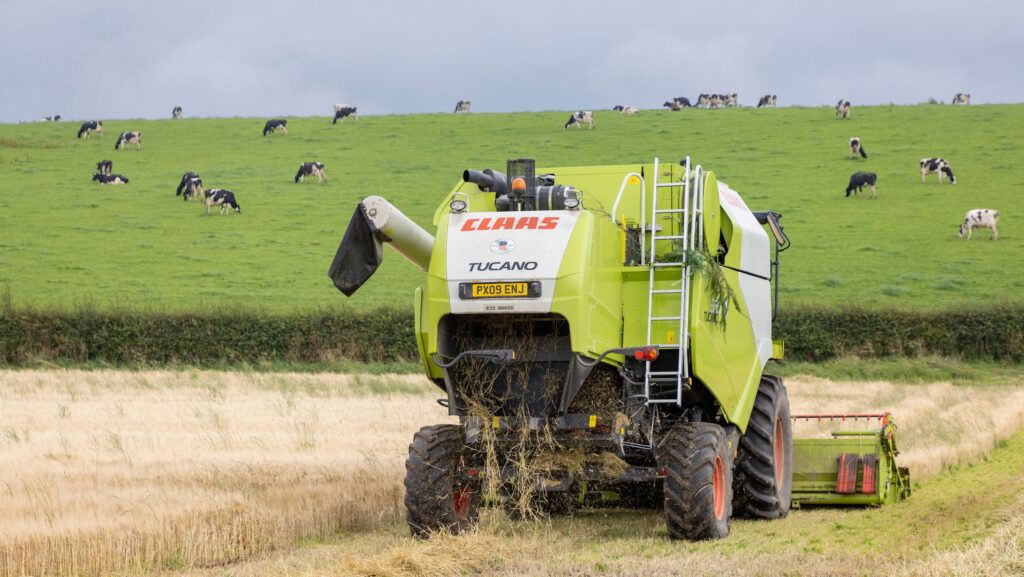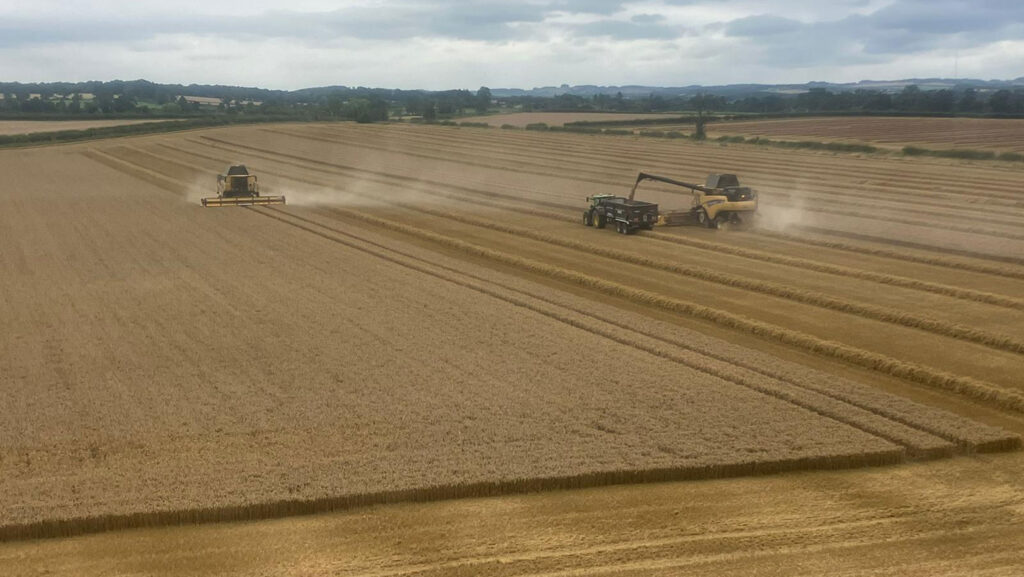Harvest 24: Hard wheats outperform soft varieties in Kelso
 © GNP
© GNP Harvest continues across the country, with variable results on wheat and several growers reviewing their strategy for the next season – turning towards environmental schemes to boost the bottom lines
Kelso
The 650-ha wheat harvest is 60% through at Mertoun Estate Farm, near St Boswells, after a few damp days stopped progress.
Yields have been variable, with hard wheats doing better than soft varieties, says farm manager Jack Parsons.
See also: Harvest 2024: The 5 top-yielding spring barley varieties map
The average across all the varieties – Dawsum, Insitor, Swallow and Skyscraper, was 9t/ha. “We would like to be closer to 10t/ha, but the soft wheats have brought the average down,” he says.

© Jack Parsons
“However, specific weights are good in the low 80s – which is surprising as the sample doesn’t look great.”
Winter barley, oilseed rape and winter oats are all safely in the shed.
The 280ha of Dazzle, Caravelle and Canyon winter barley yielded 8t/ha, which is slightly back on its usual average, while the 300ha of Crome, Wagner and Tom oilseed rape were disappointing at 3.7t/ha, down on the usual 4t/ha.
The 100ha of Conway winter oats followed a similar pattern, down 1t/ha at 6.5t/ha. “Conway is actually a spring variety, but we drill it in the autumn to bring harvest on a bit quicker.”
East Yorkshire
Heading south, harvest is complete at Field House Farm, Bainton, with most crops yielding well.
Richard Beachell finished three weeks ago, a little ahead of usual.
“The 46.5ha of Craft malting barley averaged 8t/ha, which was slightly up this year, but I am not quite sure why as we haven’t made any changes,” he says.
The quality has been good, with a low nitrogen of 1.45% and low screenings.
Although the oilseed rape area was halved to 26ha this year, the Duplo still had a poor season, yielding 2t/ha due to flea beetle damage.
But it’s a positive outcome for the first winter wheats, with Champion and Typhoon averaging 9.8t/ha.
Despite the second wheats being planted in less-than-ideal conditions in October, Champion and Skyfall yielded 7.5-8t/ha.
“It has been an easy harvest for us, particularly when I think back to how we thought it was going to be in January,” says Richard.
“It has been good to get decent wheat quality at low to mid-70s specific weight and moisture levels at 16% and under.”
Oxfordshire
In the Cotswolds, this year’s harvest results have prompted the Walker family to review their risk management strategy for 2025 at Asthall Farm, Burford.
Oilseed rape was less than favourable, with the 61ha averaging 3t/ha at 45% oil content, compared with the normal 3.8t/ha.
“The grassweed control has been poor and the chemicals haven’t worked,” says John.
“It has become too risky for us to grow, and even if we had got it right, the rewards aren’t there.
“We are going to go into a Sustainable Farming Incentive (SFI) scheme and will grow some break crops; although it won’t pay as well as a good crop it is a safer bet.”
The winter wheat has been of average quality, at 78kg/hl and 13-15% moisture. Yields too have been average, with Extase and Palladium achieving 8.7t/ha and Kerrin 7.4t/ha.
Winter barley is also complete, with Bolton averaging 7.4t/ha, but unfortunately affected by ergot for the first time.
Cornwall
Further south, Charlie Watson Smyth is taking a more cautious approach, after two poor seasons at Tregirls Farm, Padstow.
The 14ha of Cassia winter barley was of average quality, and yielded just 5t/ha at 65kg/hl, and 1.7% nitrogen.
The Laureate spring barley was slightly better at 6t/ha, 65kg/hl, 1.7% nitrogen and low screenings.
“The spring barley was planted in April as it was just so wet and way too late for us on the sandy coast,” says Charlie.
Like John, Charlie is increasing the number of stewardship initiatives on the farm and focusing less on market price as he plans for next year.
“The cost of production for us is so high and the sale price is not great, so while the schemes are not going to make us millionaires, it will keep the wolves from the door as we concentrate on managing livestock and selling directly into our farm shop.”

